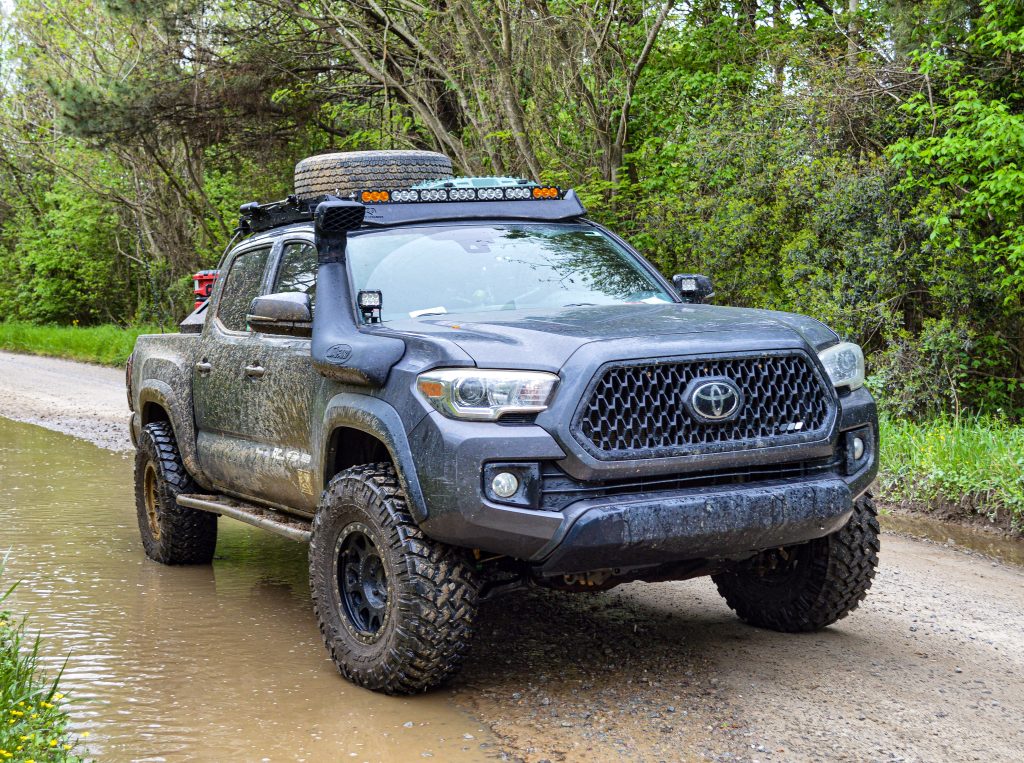
Relocating your spare tire is important when off-roading and overlanding for a multitude of reasons. The Melipron Universal Spare Tire Carrier is perhaps the easiest and most cost-effective solution for doing that.
This kit comes with everything you need to mount your spare on most bed racks and roof racks, including both platform and basket-styles. It is powder-coated for maximum rust and scratch resistance and is lockable to prevent theft.
Considering its price point and simple installation, this carrier should be considered by all serious off-roaders and overlanders.
Find It Online
- Melipron Universal Spare Tire Carrier: Check Price
Table Of Contents
Why Relocate?
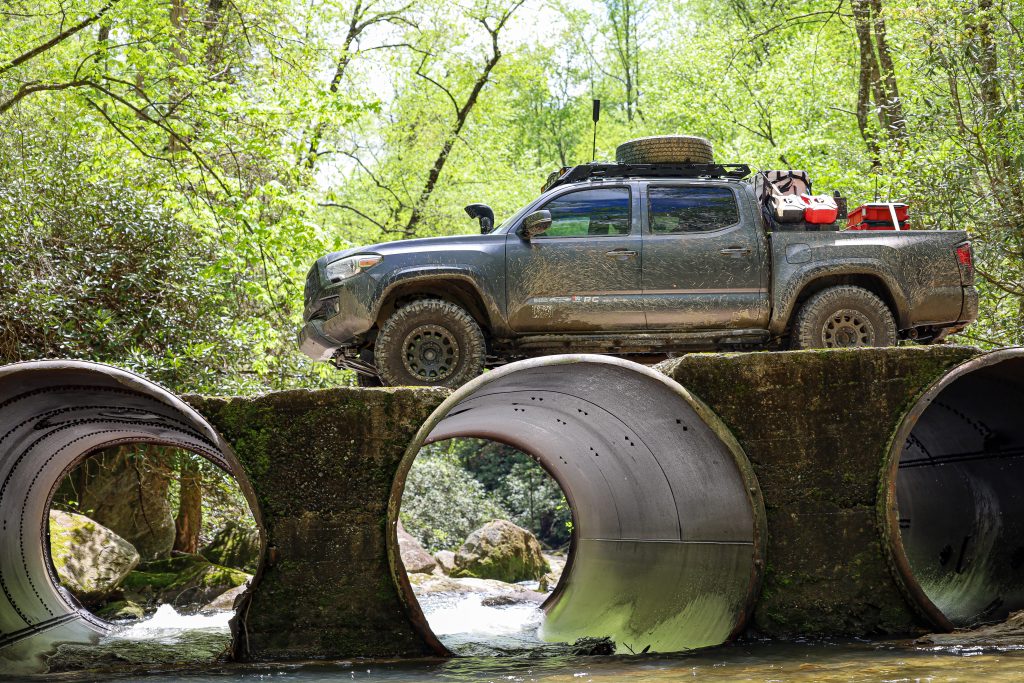
A spare tire is of the utmost importance when off-roading, especially on multi-day overlanding excursions. Even if you carry a plug kit or fix-a-flat, these will be of no use in the case of a ruptured or a punctured sidewall.
Furthermore, deflating your tires, while necessary when off-roading, increases the likelihood of them coming off the bead. If you’ve ever encountered this, you know that reseating a tire is a difficult repair out on the trail. Additionally, if it gets damaged beyond repair, you can be left immobile on the trail with few options.
When stored in the factory location, your tire is subject to all kinds of abuse, both on and off the road. Off-road, your spare is susceptible to mud and debris that can lead to corrosion and wheel damage.
A lesser-known fact is that mud can get caught in between the bead and cause a flat. With the spare mounted underneath the bed, it gets covered with mud and dirt that could cause a flat or damage. This is especially common in the Southeast where red clay and sandy mud are commonplace.
Furthermore, there is also the risk of puncturing when bottoming out over rocky terrain. Relocating from underneath your bed will prevent this from happening, and give you a bit more ground clearance in the rear.
Running Larger Tires?
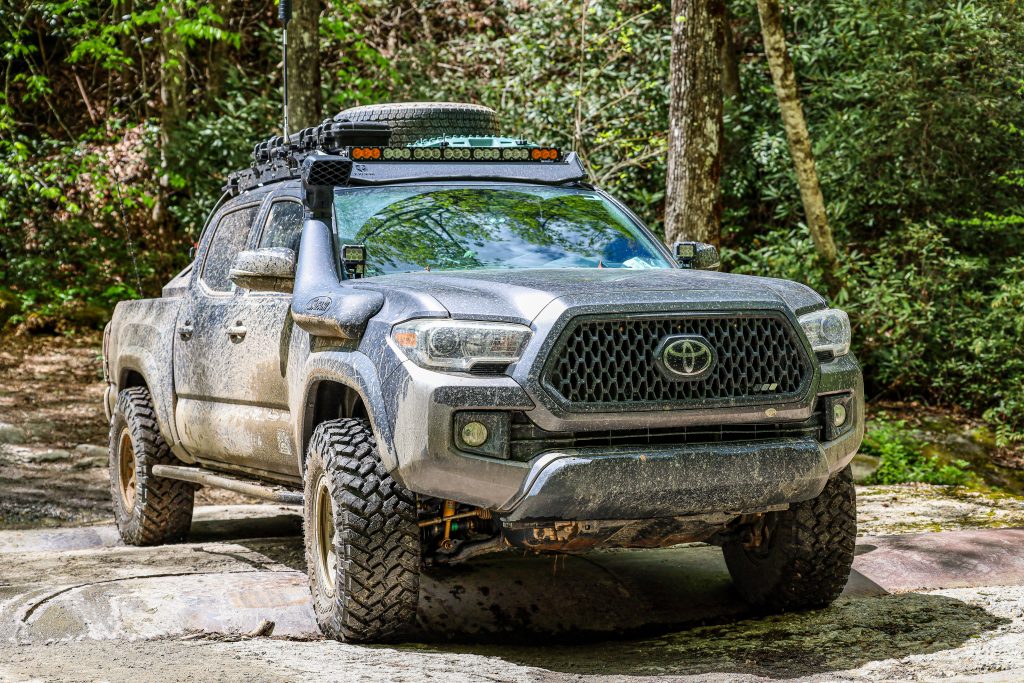
Relocating your spare is a must if you go above 33 inches. It’s also important to have a matching size. Driving on a smaller one puts more strain on your drivetrain, suspension, axles, and differentials. Your differentials work to spin each wheel at different speeds to aid in cornering, and a smaller tire on one side will undoubtedly affect this.
While smaller spares can be used in a pinch, they are a temporary fix that can cause a plethora of issues if used more than 50-100 miles. This can be a real issue when on a rough trail miles away from a tire shop, not to mention it is uncomfortable to drive when one side is lower than the other.
The point is, bigger tires (anything above 32/33″ in diameter) will likely not fit underneath the bed without modifications.
Other Solutions
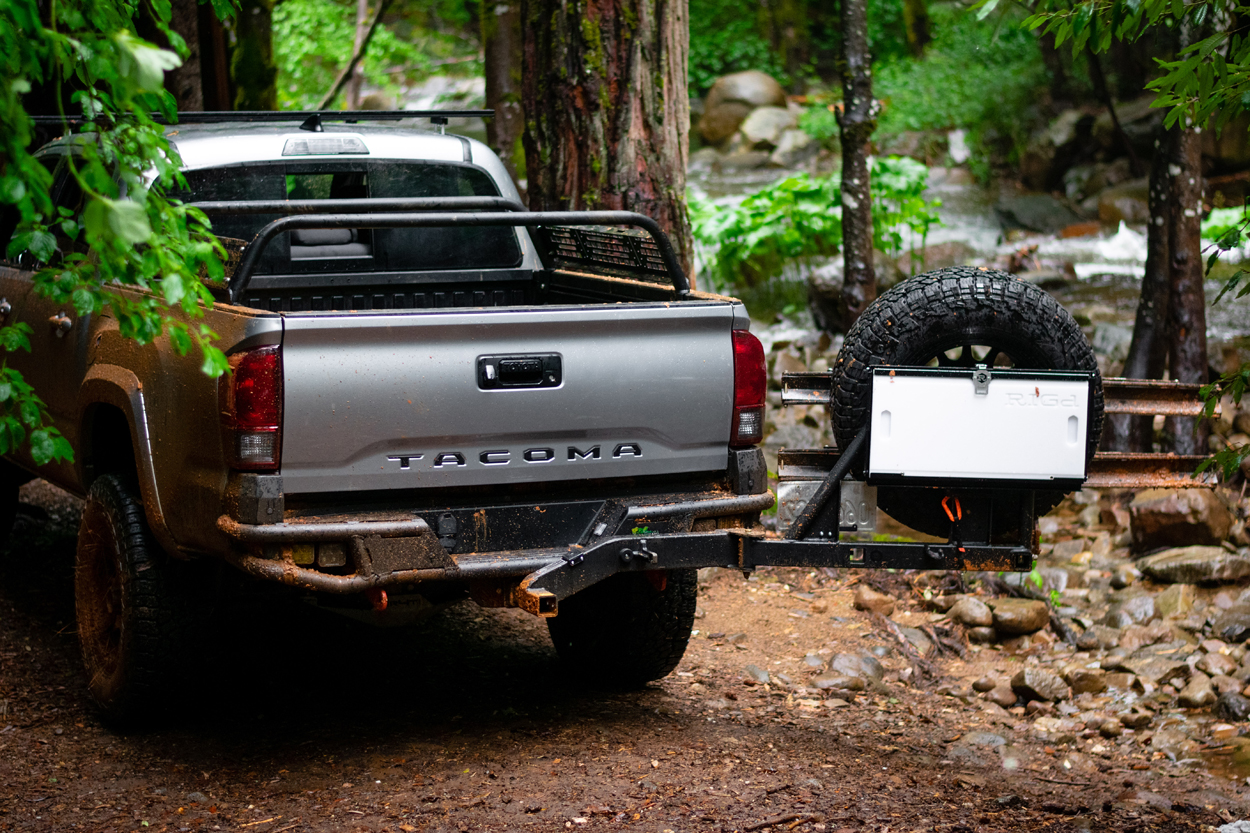
For us Tacoma owners, other than the factory location, there are few options to store and mount a spare tire.
Full replacement rear bumpers with swing outs, while nice, can be costly and they can restrict access to your tailgate. They also cover your backup camera and license plate and prevent you from hauling long items with the tailgate down (such as kayaks/canoes, lumber, furniture, etc.).
Hitch-mounted spare tire carriers share these same pitfalls. They can also shift weight farther to the rear and reduce your departure angle.
Others may simply throw their spare in the bed; not only does this take up a lot of bed space but also risks damaging it with all the other gear in the bed crashing into it on bumpy trails.
For these reasons, I decided to go with this one. It’s much less expensive than other options.
Installation
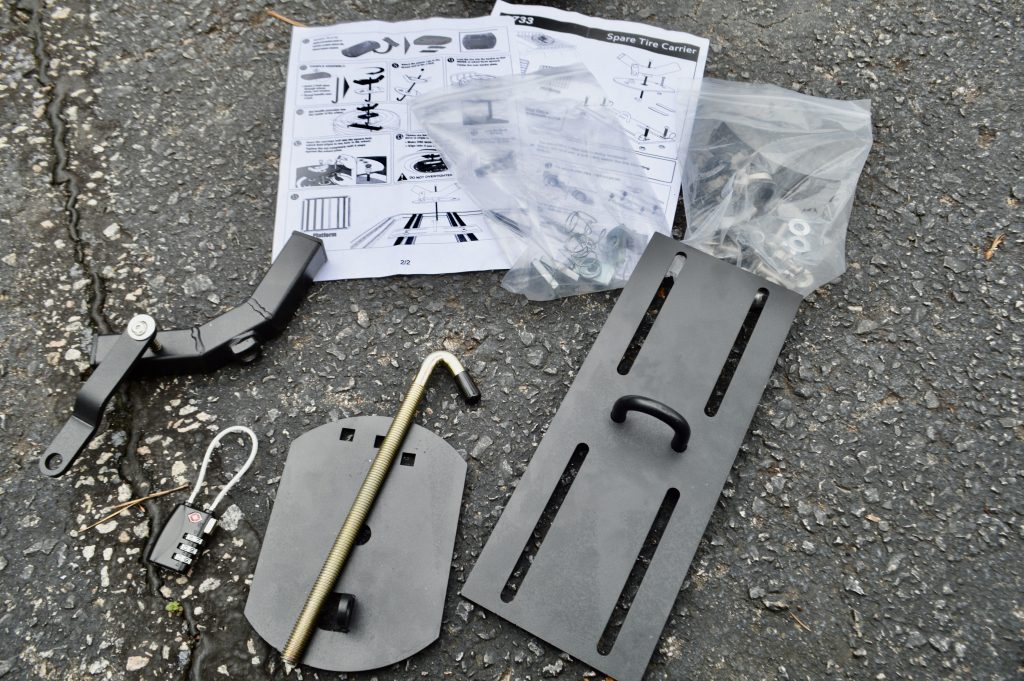
This install is fairly simple and does not require many tools. All you will need is a socket set or adjustable wrench to tighten the bolts. Overall, it only took me about 15 minutes to complete the install.
In the box, you get everything you need. This includes your mounting plate, the tire plate, and the J-bolt that connects the two securely in place. The handle screws on top of the plate, allowing you to tighten the top plate to accommodate a variety of sizes.
Hardware is included for securing the mounting plate to both styles of roof racks. It even comes with foam padding for the tire plate to prevent damage to the wheel and reduce vibrations. Finally, a travel lock is included to prevent theft. Although, I would recommend upgrading this lock as the shackle is a thin wire that could be easily cut through.
Step 1. Drop & Remove Spare
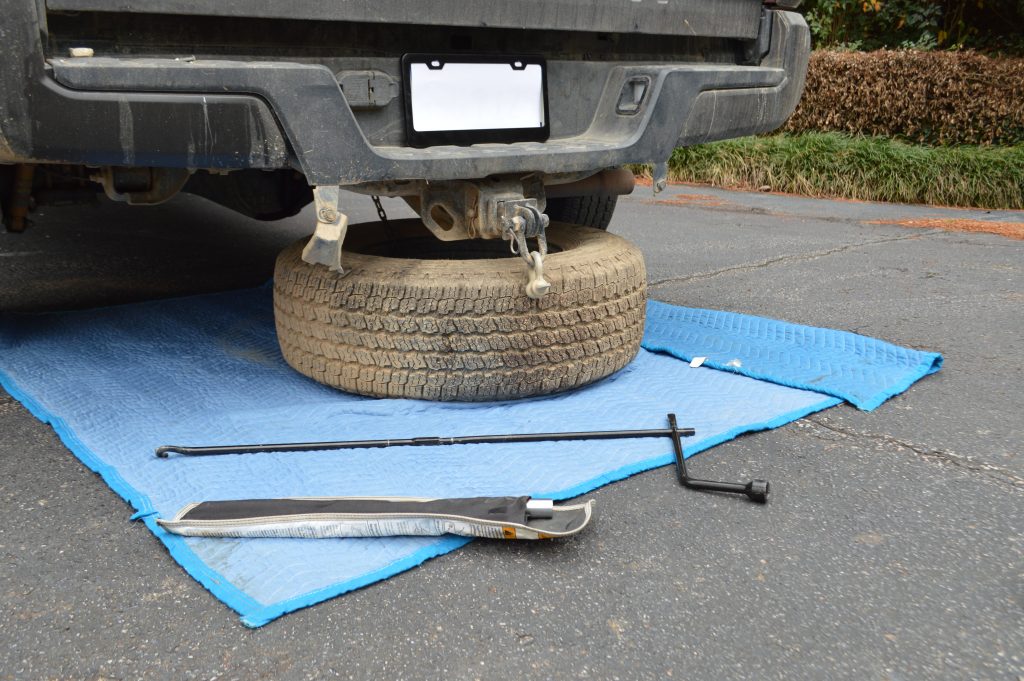
Remove your spare tire from underneath the truck bed. Lower it and disconnect the central hub bracket.
Once disconnected, raise the bracket and chain all the way back up so that it is not dangling. Failure to do so can cause damage to the bracket or cause it to snag and break off.
Step 2. Align Bolts On Mounting Surface
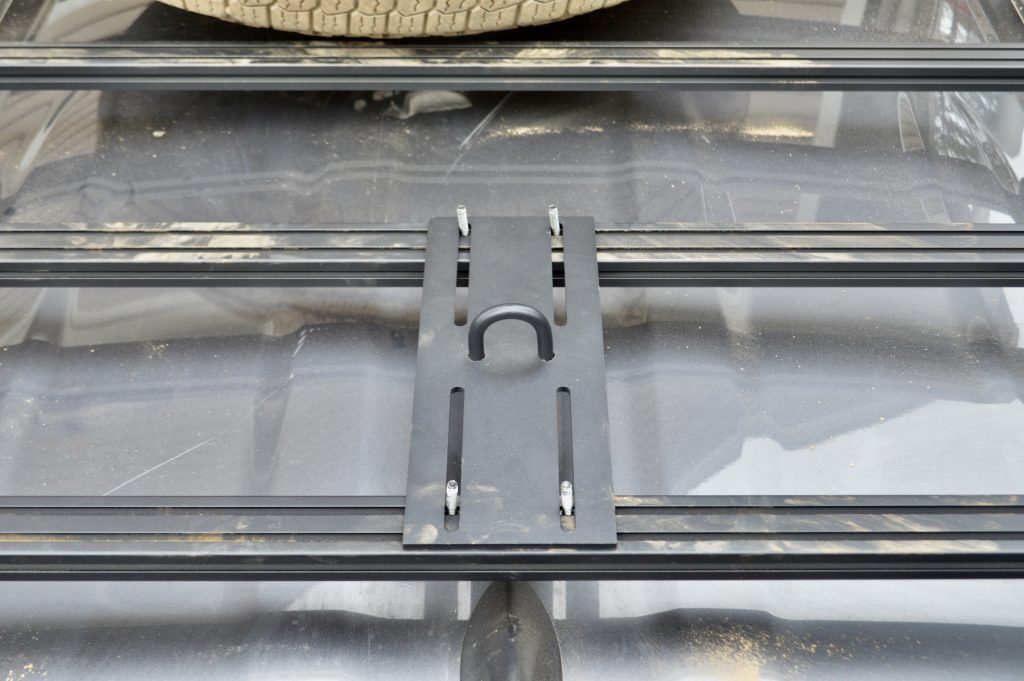
For a platform-style roof rack, take four bolts and slide the bolt heads into the track of the crossbar. Some adjustments to the crossbars may be necessary.
For a basket-style rack, four circular plate clips are included. Slide the plate clips over the round crossbars and insert the bolts into the holes.
For a bed rack or MOLLE panel, insert the bolts into the mounting locations.
Set the mounting plate over the four bolts with the metal loop facing up and tighten each nut.
Step 3. Position Spare Tire & Attach J-Bolt
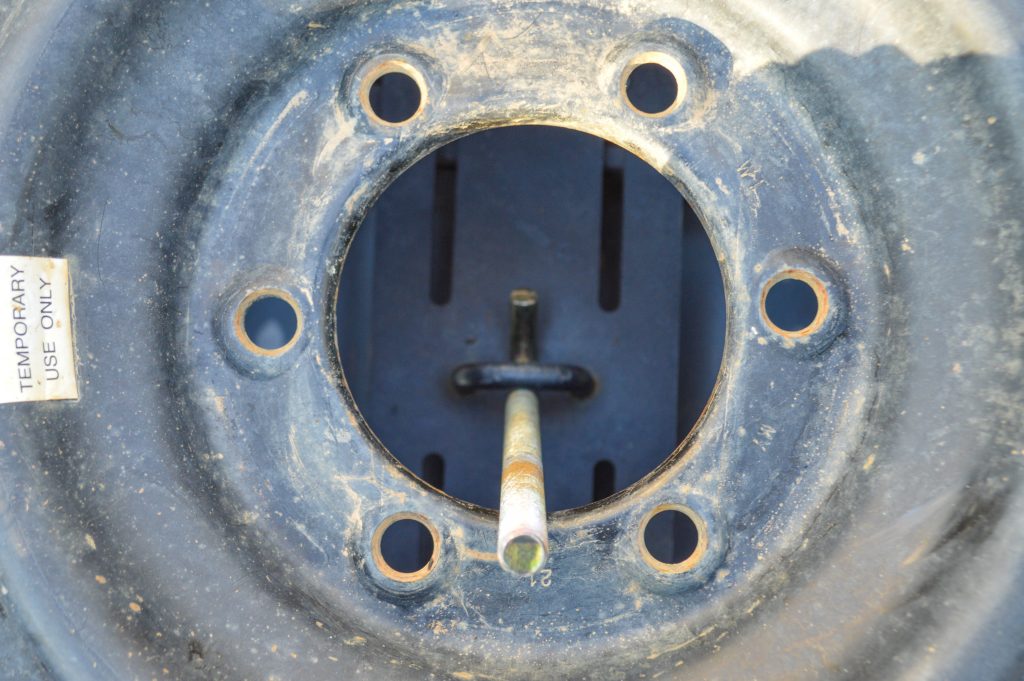
Position your wheel and tire in the center of this loop. Ensure the mounting plate and tire are centered on the roof rack since having the additional weight offset could cause you to lean hard into turns or even tip over.
With the wheel centered over the mounting plate hook, take your J-bolt and hook it to the metal loop on the mounting plate.
Step 4. Apply Foam Protective Pads
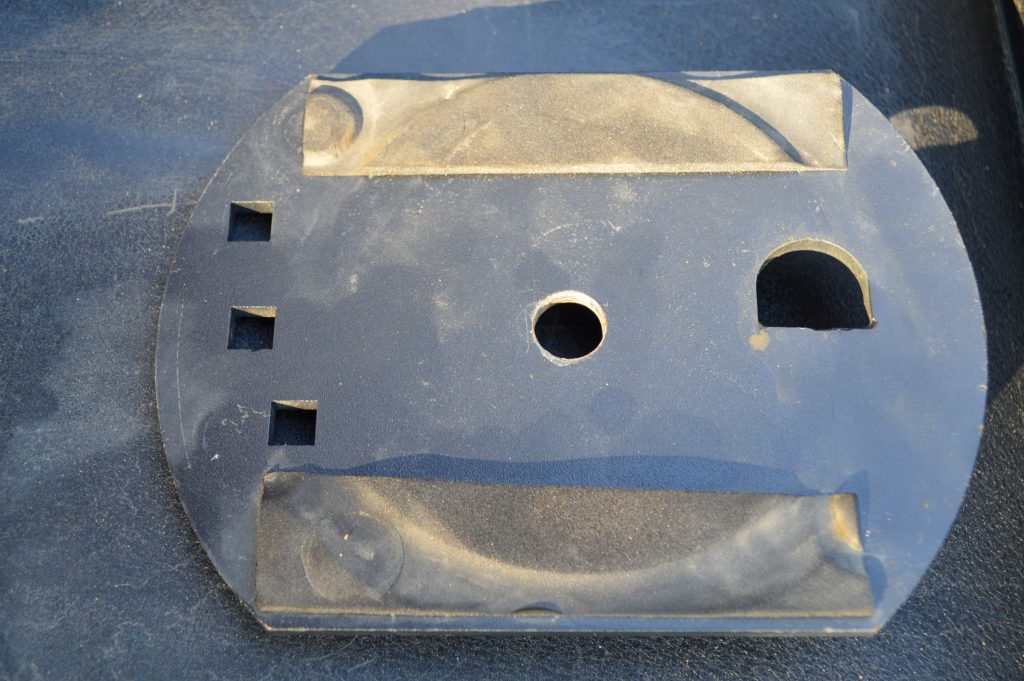
Grab your wheel plate and attach the foam wheel protector strips to both sides.
Step 5. Connect Top Plate & Secure Tire
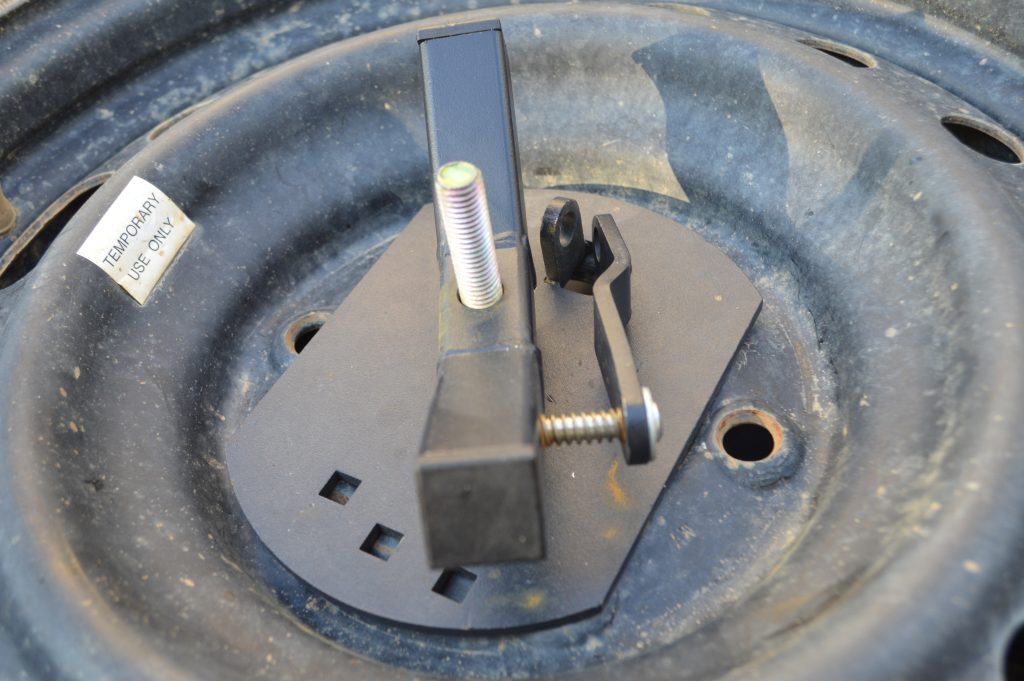
Place the wheel plate over the J-bolt, threading the j-bolt through the hole in the center of the wheel plate.
Thread the top handle onto the J-bolt until the wheel plate is tight against the wheel. Align the handle’s side hole to the wheel plate’s side hole and place your lock through both to secure your tire to the carrier.
Final Thoughts
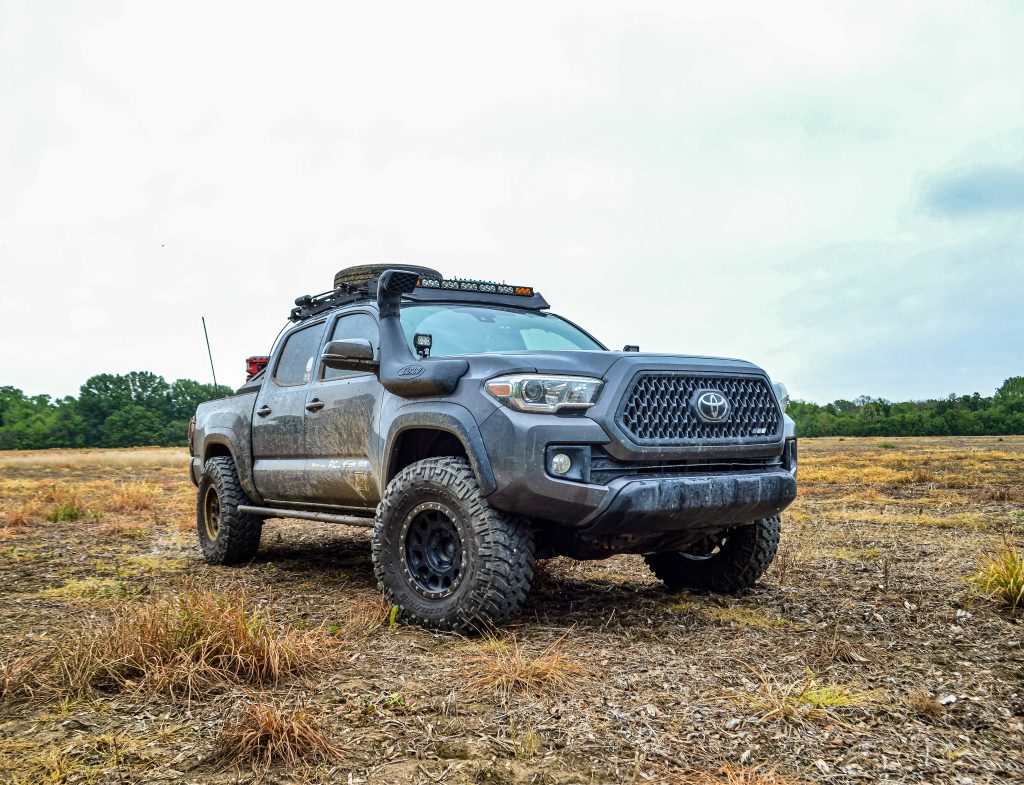
The only I didn’t like about the kit was the included lock. While I think it’s a thoughtful addition, the wire shackle could be easily cut with a pair of bolt cutters. However, the locking holes are large enough that I was able to replace them with a stronger padlock.
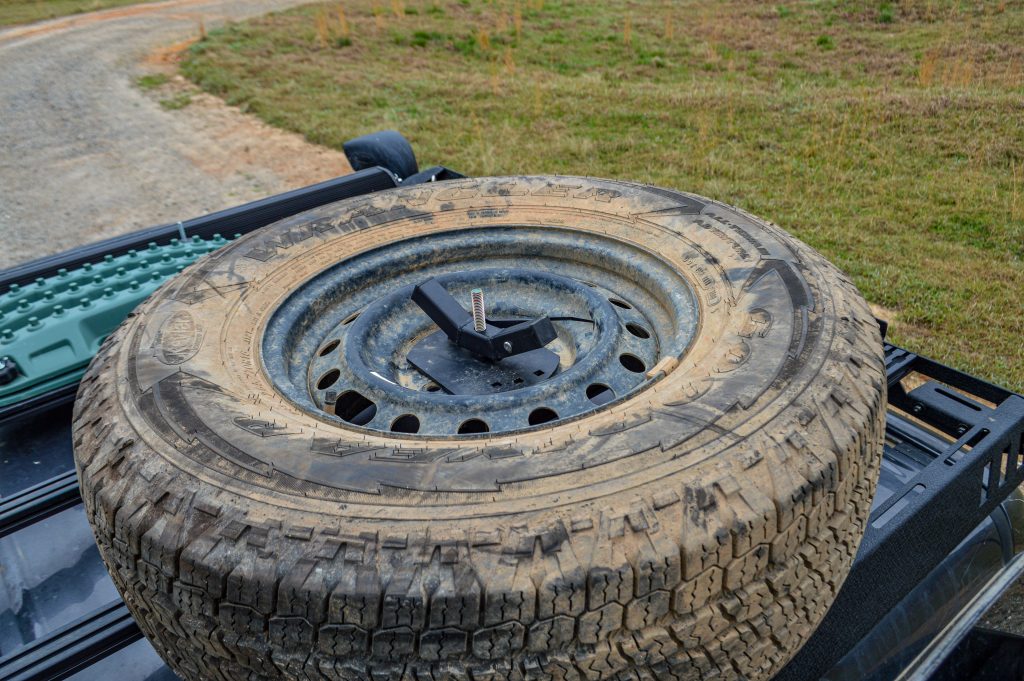
Another thing to consider is the added vehicle height. For example, I can’t pull into an average garage with my truck’s lift and the spare on top. As I said, though, it can be easily removed. I will be installing a full overland bed rack in the next few weeks. From there, I will mount the carrier on it, allowing me enough clearance to park in a garage.
Overall, I’m happy.

